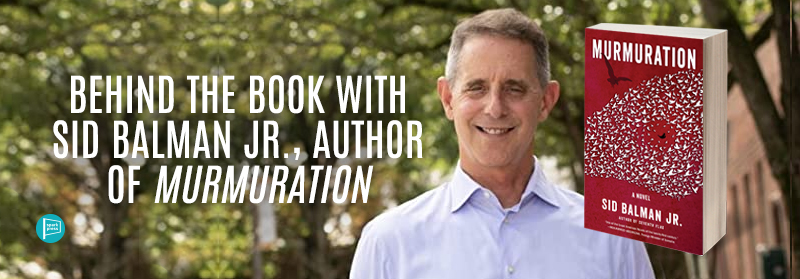
The irony of it did not escape me as I observed the Wudu, the sacred Islamic ritual of washing one’s ears, hands, arms, and feet, with a group of men prior to evening prayer at the largest Mosque in El Paso, Texas. A guest of the Imam and a Jew in the house of Allah, researching a trilogy of novels about the radicalization of the United States since World War II, and what it means to be an American in these ambiguous times.
Fast forward two years and I’m researching book two in the Seventh Flag trilogy, Murmuration, standing outside a prominent reform Jewish synagogue in Minneapolis, attempting in vain to convince the Rabbi that he should sit down for an interview about the spread of violent anti-Semitism and white fascism in his community. As a member of the tribe, I thought it would be a softball interview to land. He wouldn’t even allow me inside the building to wash my hands.
I’ve pondered whether there was some larger meaning behind the reception I received from both faiths, and come up with very little of substance. Except for one thing, and that has made all the difference in my work as a reporter and as a novelist.
Landing and keeping the source
The most effective way to land an interview on a subject as potentially controversial as religion is to go through an influential and trusted third party. In the case of the former, several elders in the Islamic community in Texas, the largest in the country. I went in cold with the Minneapolis Rabbi, and came up empty handed.
Invariably with a source, you will need to go back for follow-up conversations, which is easily done as long as the story or novel is in progress. Once it’s published, your source and your cut-out will not even answer your telephone calls if you have misrepresented anything they said or, perhaps more importantly, erred in some nuance of their faith. Nothing screams sloppy and unprofessional more than those types of mistakes.
Not allowing a source to review an article or novel is a guiding principle for me. But to avoid errors and losing sources, I will usually go over all the factual information with them. They still may not care for your reporting or your novel, but I have found that they will not have an excuse based on inaccuracies and careless tradecraft to freeze you out the next time around. It’s something like the grudging respect you build with a fierce competitor in sports, or in combat. As the ancient Chinese General Sun Tzu said, “anger may in time change to gladness; vexation may be succeeded by content. But a kingdom that has once been destroyed can never come again into being; nor can the dead ever be brought back to life.”
Journalism vs. Historical Fiction
I’m often asked what the differences are in journalism and historical fiction, and often respond glibly that fiction is a journalist’s dream because they can make up all the quotes and many of the details. I think of journalism as the best representation of truth as it unfolds, and historical fiction as the version of truth we see in the rear-view mirror.
And that relates to the final guidance I would offer on writing about religion: dig deep on your research, and avoid the obvious clichés or phony truisms in your writing. For example, do you refer to a Palestinian bomber as a terrorist or as a freedom fighter; a devout Evangelical Christian who opposes abortion as a right-wing extremist or as an advocate? Our choice of words should be thoughtful and measured, not biased or politically correct. That’s a difficult needle to thread, but that’s our job as journalists and novelists.

Leave A Comment